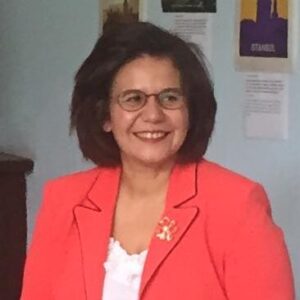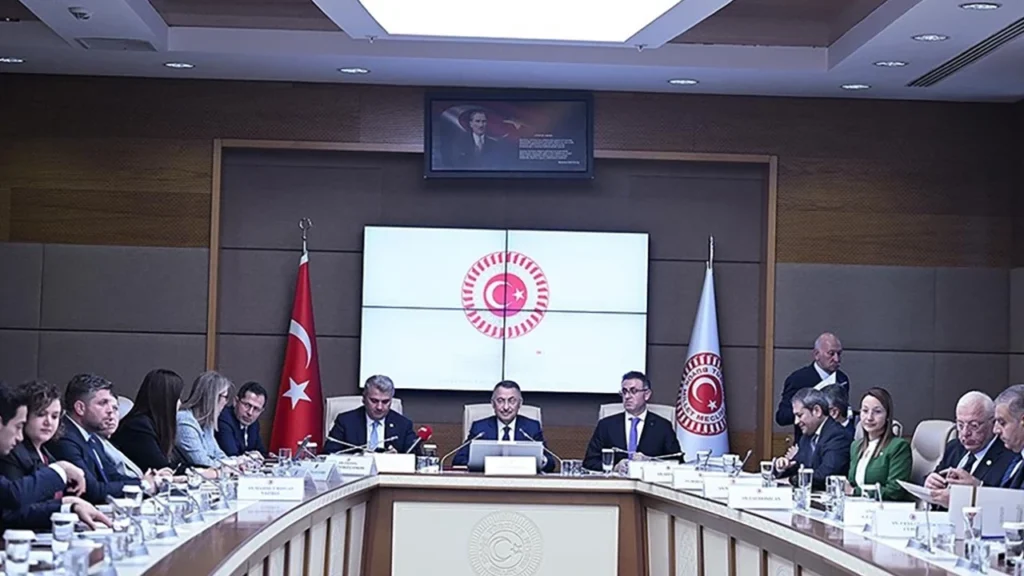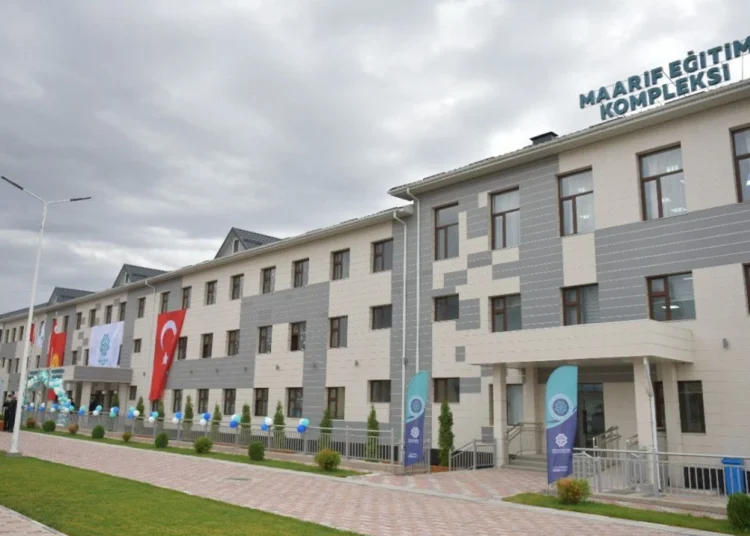Levent Kenez/Stockholm
Turkey’s foreign aid program, long touted as a symbol of humanitarian outreach and solidarity with developing nations, is increasingly drawing scrutiny amid allegations that much of its financial assistance is shaped by corruption, political patronage and geopolitical bargaining rather than genuine development goals.
The Turkish Parliament’s Foreign Relations Committee on October 16, 2025 revealed a widening gap between the government’s official explanations for multimillion-dollar aid packages and the underlying political and military interests they appear to serve.
The committee convened to discuss recent aid deals including debt forgiveness for Kyrgyzstan and a renewed $30 million cash grant to Somalia. Officials described these moves as gestures of goodwill and solidarity, but the debate exposed inconsistencies between the official narrative and the realities on the ground.

The written agreement submitted to the parliamentary committee describes Kyrgyzstan’s $59 million debt cancellation as supporting “projects aimed at protecting the environment and promoting a green economy” and says it will symbolize “mutual support and solidarity” between the two nations.
However, Deputy Foreign Minister Ayşe Berris Ekinci told the committee a different story. In her oral remarks she emphasized that Kyrgyzstan had been the first country where “the transfer of schools linked to the Gülen movement [a group critical of President Recep Tayyip Erdogan], to the state-funded Turkish Maarif Foundation took place.” She framed the debt relief as part of broader cooperation on the transferring of schools that appears to contradict the environmental rationale set out in the written agreement.
Human rights groups and diplomatic sources say Turkish embassies and consulates have systematically monitored critics of President Recep Tayyip Erdogan abroad, compiling reports that single out individuals and institutions tied to the government-opposed Gülen group and treating them as if they were part of a terrorist network. Ankara often views employment at a Gülen-inspired school or contributions to affiliated nongovernmental organizations as evidence of criminal activity.
One high-profile case involved educator Orhan İnandı, who lived in Kyrgyzstan for nearly 30 years. He was seized in Bishkek on May 31, 2021, and later surfaced in Turkish custody in what rights groups called an illegal rendition by Turkey’s intelligence service. İnandı was arrested on July 12, 2021, and in 2023 was sentenced to 21 years in prison on charges of membership in a terrorist organization.
It is now clear that İnandı’s abduction was also a result of the kind of cooperation between Turkey and Kyrgyzstan that Deputy Minister Ekinci described.
European governments have largely rejected Turkey’s extradition requests for members of the Gülen movement, stating that they do not classify the group as a terrorist organization and questioning the credibility of Ankara’s evidence. However, diplomats and analysts say the situation is different in parts of Africa and Central Asia, where Turkey has used promises of aid, investment or bribes to persuade local authorities to cooperate in its campaign against the movement.

That strategy was laid bare in a 2022 interview with Ali Burak Darıcılı, a former operative of Turkey’s National Intelligence Organization (MİT) who is now active as a MİT propagandist on television programs and social media. Speaking on a popular YouTube channel on May 15, 2022, Darıcılı discussed the abduction of members of the Gülen movement, saying so-called failed states are vulnerable to covert measures because they lack robust institutions. “You can handle them with bribes,” he said, adding that such tactics are not feasible in countries like Germany. He warned that using local collaborators is common in Africa and Asia and that covert operations carry the risk of prosecution under international law if agents are caught. He concluded with a blunt admonition that knowing whom to bribe is crucial.
Moreover, documents reviewed by local media show that Kyrgyzstan simultaneously purchased more than $33 million in Turkish military equipment, including Bayraktar TB2 drones and armored vehicles. Observers say the timing of the debt relief and defense purchases suggests a broader quid pro quo strategy that allows Ankara to deepen its regional foothold through a mix of aid, arms sales and ideological influence. TB2 drones are produced by Baykar, a defense contractor owned by Erdogan’s son-in-law.
The same committee meeting also confirmed Turkey’s ongoing budgetary support for Somalia. Ekinci said that a direct grant agreement signed in January 2023 provided the Somali federal government with $30 million in cash to cover operational expenses including salaries for civil servants and soldiers and the office expenditures of the Somali president and prime minister. Officially, the money is meant to help stabilize Somalia’s fragile public institutions.
Minutes of the parliamentary committee meeting on October 16, 2025, in Ankara:
Opposition lawmakers questioned whether Turkish taxpayers’ money was being used transparently. They cited allegations from Somali and Turkish sources that part of the financial aid was diverted to pay off debts owed by companies close to Erdogan. Some of these firms have longstanding contracts in Mogadishu for port operations, airport management and construction projects. “Turkey’s aid to Somalia increasingly serves the business interests of a few politically connected companies,” said one opposition member, calling for an independent audit of all aid transfers.
Turkey has maintained a substantial military presence in Somalia since 2017, operating its largest overseas base in the capital. The base trains thousands of Somali soldiers each year and is widely seen as a pillar of Ankara’s broader strategy to secure influence along the Horn of Africa. Analysts say the steady stream of budgetary assistance, combined with defense training and infrastructure contracts, has created a network of dependence that extends Turkey’s reach beyond mere diplomacy.












